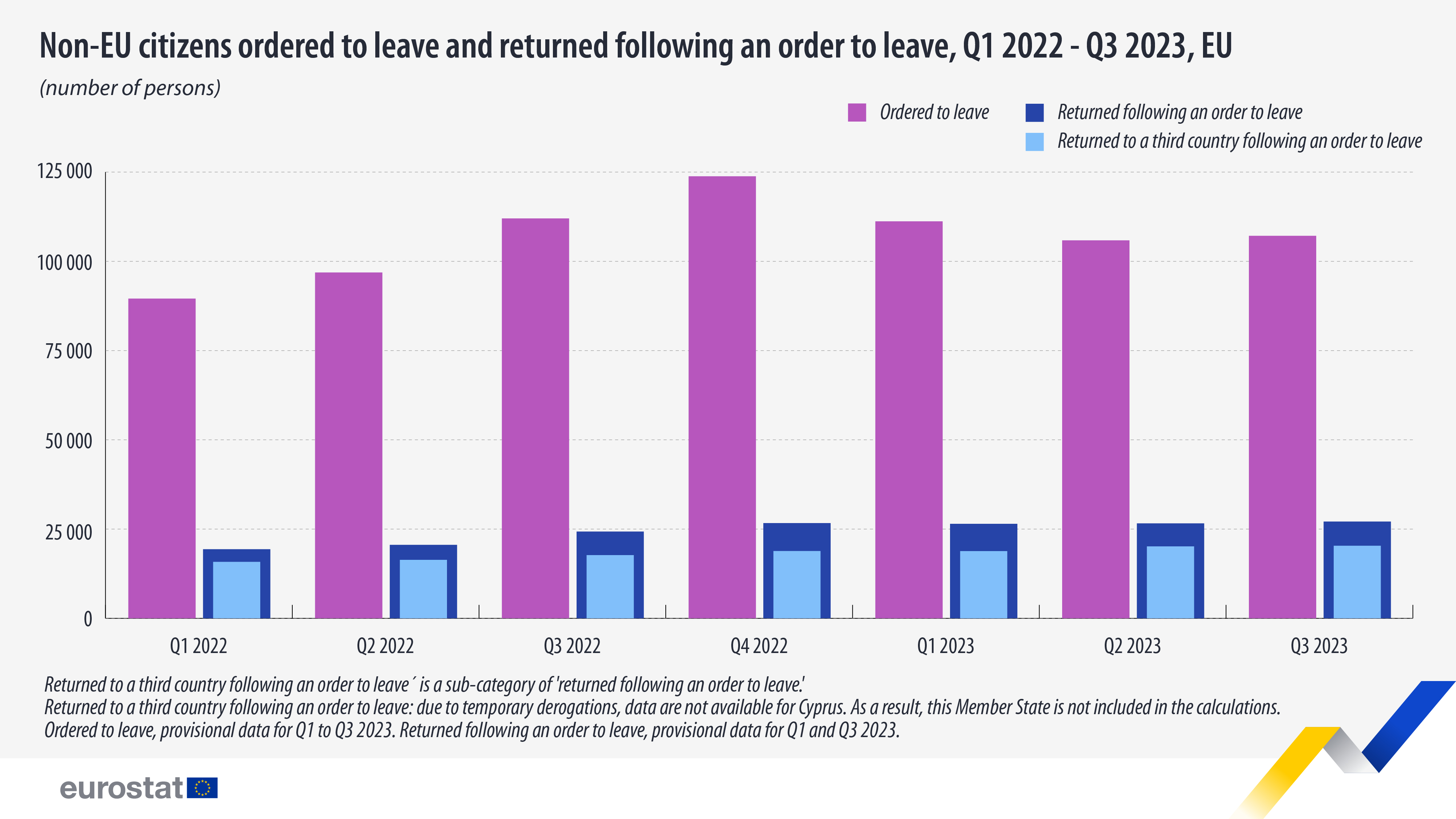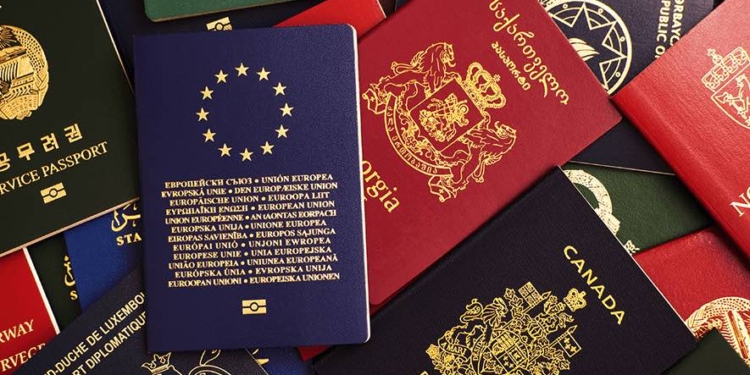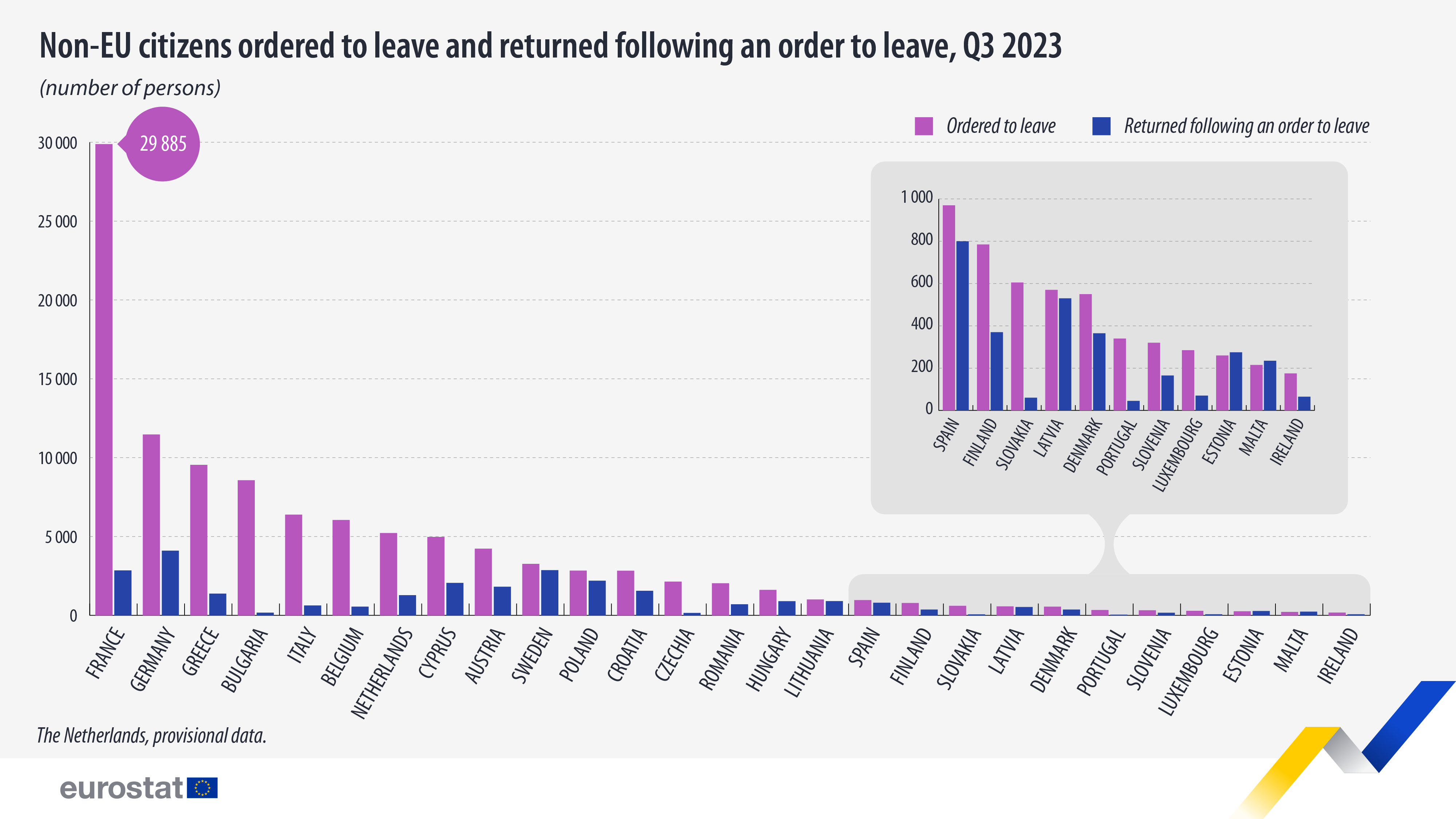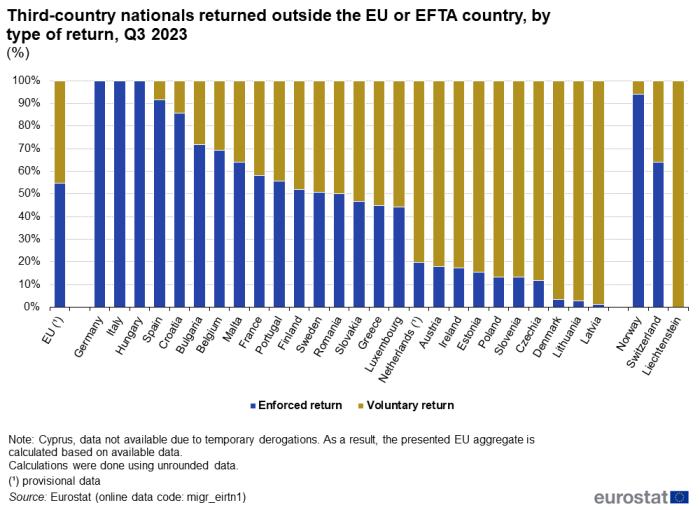The FINANCIAL — In the third quarter of 2023, 107 135 non-EU citizens were ordered to leave an EU country, and a total of 27 095 were returned to another country following an order to leave. Compared with the same quarter of 2022, the number of non-EU citizens ordered to leave decreased by 4%, while the number of people returned to another country rose by 12%.
Compared with the previous quarter of this year, the number of orders to leave (+1%) and returns (+2%) registered slightly increases.

The majority of those returned, in accordance with an order to leave, were returned to countries outside of the EU (81% of individuals in the third quarter of 2023).
Among those ordered to leave the territory of an EU country, in the third quarter of 2023, Moroccan had the biggest share of the total (8%), followed by Syrian and Algerian citizens (7% each), as well as Afghanistan citizens (6%) and Türkiye and Georgia (each 5%).
Among those returned to another country, most were citizens of Georgia (11%), followed by Albania and Türkiye (each 7%), and Moldova (4%).
Looking at national data, the highest numbers of non-EU citizens ordered to leave the territory of an EU country were recorded in France (29 885), Germany (11 470) and Greece (9 545).
Germany (4 100), Sweden (2 865) and France (2 850) recorded the highest number of people returned to another country.
Types of returns and assistance received
In recent years, there has been increased demand for more detailed information on the enforcement of immigration legislation, leading to the development of new statistics on returns (including the collection of statistics on returns by type of return and assistance received). See the methodological note on derogations that were granted to EU countries in the ‘Data sources’ chapter of this article.
In Figure 3, the information by type of return in the third quarter of 2023 is presented. Based on the available data, the returns at EU level show that 45.2 % of returns concerned people who left the territory voluntarily, while 54.8 % concerned those returned forcibly. In Germany, Italy and Hungary all the returns reported were enforced while in Latvia, Lithuania and Denmark more than 95% of reported returns were recorded as voluntary.
Figure 3: Third-country nationals returned outside an EU or EFTA country, by type of return, Q3 2023
(%)
Source: Eurostat (migr_eirtn1)
Figure 4 shows information by type of assistance received by non-EU citizens to facilitate their return. Some return programmes funded by the EU, national or international organisations provide reintegration support for returnees. This may include administrative, logistical and/or financial support to migrants who return to their country of origin.
In the third quarter of 2023, across the EU countries for which data are available, 70.5 % of returns were assisted and 29.5 % were non-assisted. In Germany, Spain, Italy, Hungary, Portugal and Slovakia all non-EU citizens were assisted in their return, while almost all third-country nationals leaving Latvia and Lithuania were not assisted.
In August 2023 Chancellor Olaf Scholz’s cabinet classified Moldova and Georgia as so-called “safe countries of origin” meaning asylum seekers from there can be rejected and deported faster than in the past.
The move, once parliament has approved the new regulation, is a further step in efforts to curb migration to Germany as the country struggles to house and integrate more than 1 million refugees who fled the war from Ukraine last year. Different from others fleeing to Germany, Ukrainians do not need to apply for asylum but get a right of residency immediately.

































Discussion about this post